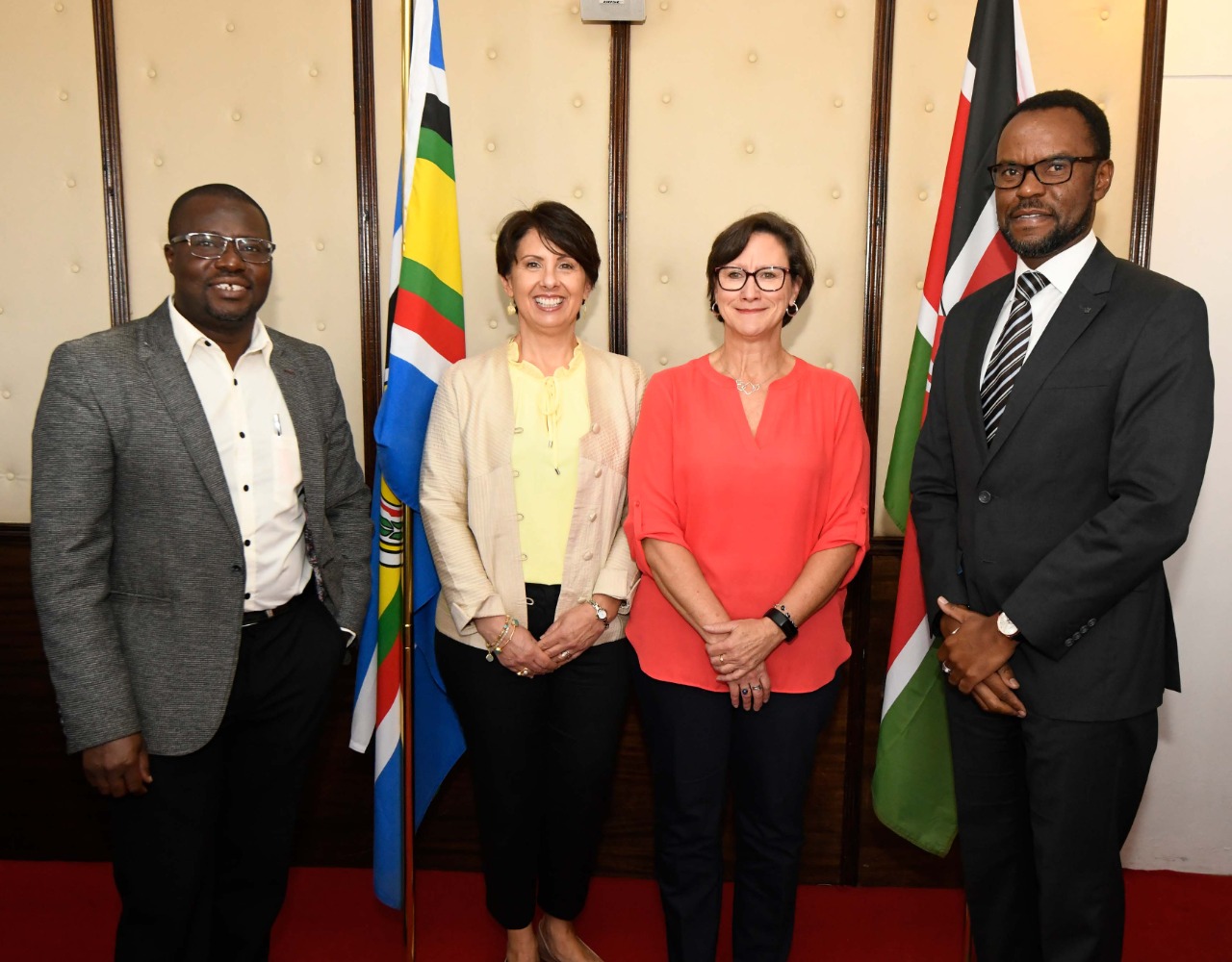Efforts towards developing the ecosystem for human vaccine manufacturing in Kenya
Kenya has embarked on establishing its local manufacturing capacity of human vaccines through enhancing the ecosystem by strengthening its pharmaceutical regulatory environment. The Kenya BioVax Institute (KBI)’s Chief Executive Officer Dr. Michael Lusiola, in an inception meeting with a delegation from the United States Pharmacopeia (USP) on pandemic preparedness and local vaccines production, described possible areas of collaboration in building vaccine production capacity, including knowledge transfer, workforce development, regulatory and product approvals.
Dr. Lusiola, addressing the meeting, said KBI has prioritized collaboration with the national medicines regulatory authority – the Pharmacy and Poisons Board, ahead of the roll-out of human vaccine production.
“We have broad timelines in terms of our work plan but we are keen to have the process run concurrently with other preparations, including strengthening the regulatory framework. We want to enter the human vaccine production space when the regulatory framework has a strong foundation, and as already embedded in law,” stated Dr. Lusiola.
In expounding areas of collaboration Ms. Zlatka Lenard, the vaccines director at Promoting Quality of Medicines Plus (PQM+) from USP, said they had already engaged the Pharmacy and Poisons Board and the National Quality Control Laboratory to provide technical support in developing the regulatory guidelines specific to Kenya’s need.
“We are working in six African countries namely Kenya, Ghana, Senegal, Nigeria, Rwanda and South Africa, to strengthen regulatory and manufacturing capacity, supporting the national regulatory authorities to fulfill regulatory obligations as well as working with countries to achieve the World Health Organization global benchmarking tools for ‘Maturity Level 3’ (ML3)”, concluded Ms. Lenard.
The meeting also discussed areas of partnership in development of a curriculum to ensure the workforce is prepared to embark on human vaccine production as well as continuous learning. The Regional Director East and Southern Africa at PMQ+, Dr. Evans Sagwa, stated that USP were supporting the process of developing a curriculum in regulatory affairs, vaccines technology and manufacturing, for the region as part of the preparations for human vaccine manufacturing that will spell out the mandate of regulators and vaccine manufacturers.
Additional, Dr. Lusiola indicated that the KBI will kick off its operations with the manufacture of childhood vaccines for routine immunization, whilst simultaneously developing the capacity for pandemic preparedness.
“We, as a country, are already in the acceleration phase of being weaned-off from the donor support by UNICEF / GAVI for these important childhood, adolescent girls and maternal vaccines that we have benefitted from over the many years. In planning for local production, we have looked at the key market drivers, including where there is demand / huge unmet medical need, the ease of production of the vaccines, as well as the budgetary allocation from the Exchequer”, emphasized the BioVax CEO.
Other areas of discussion during the meeting included; plans to secure the certification for lot release of manufactured vaccines, post-marketing surveillance, licensing and inspections and conducting of a regional joint vaccine manufacturing workshop planned for later in the year.
Also in attendance at the meeting from the USP were Ms. Beth Yeager (Deputy Program Director), Dr. Mwai Ngibuini (Regional Senior Technical Advisor) and Dr. Juliet Konje (Senior Manager Partnerships & Growth). From the KBI were Dr. Ireen Mueni, Dr. Cecilia Wanjala, Dr. Rabera Kenyanya, Ms. Faith Cherop and Ms. Wendy Bochere.
The Kenya BioVax Institute is a state corporation whose mandate is the manufacturing, packaging and commercialization of specialized human health products and technologies, including vaccines, biomedical therapeutics and diagnostics.

